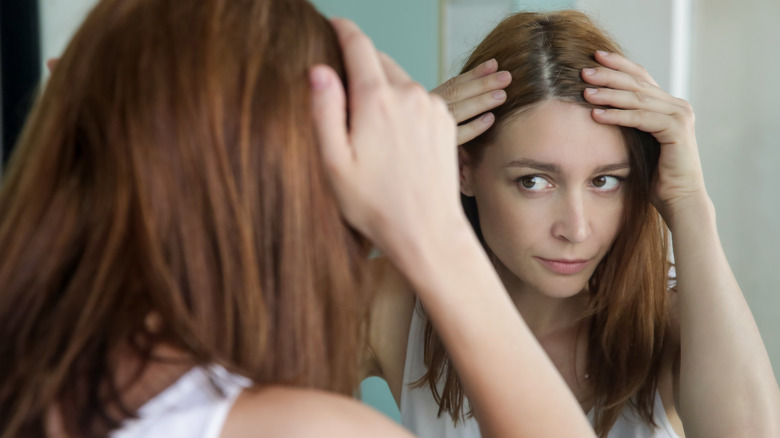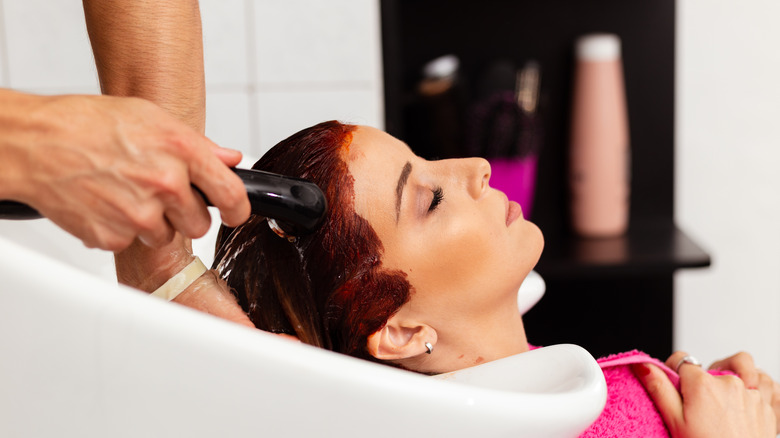Everything You Need To Know About Early Graying Hair
Although gray hair is in style sometimes, most people don't embrace seeing the salt and pepper strands when they show up naturally (via The Wall Street Journal). If your hair happens to go gray earlier than expected, you might feel worried that something is wrong, and you might find yourself faced with a choice about whether or not to cover them up at the salon or at home. While you might think the early gray strands in your mane are due to stress, chances are they're hereditary, according to Byrdie.
If you go gray early, you might be able to blame one or both of your parents. "Usually, if one or both parents went gray earlier in life, there is a more of a chance that you will," Gretchen Friese, Certified Trichologist at BosleyMD, told Marie Claire. Dermatologist Marisa Garshick, MD, told Byrdie about the factors that cause you to lose color in your 'do. "Hair turns gray, also known as canities or achromotrichia, as a result of the loss of melanin, which can occur with aging and may be partly related to genetics and possibly related to environmental factors," she said. "As we age, our hair follicles may produce less melanin, so the hair that grows out is without pigment and appears white or gray." Of course, your hair isn't actually gray. Instead, it looks that way due to a percentage of the natural color remaining in the strand. When all the color is gone, your strands are translucent, and appear white.
Here's why you shouldn't worry if you go gray early
Typically, finding gray hair earlier than you'd expected isn't a cause for concern. Marisa Garshick explained to Byrdie, "Premature graying is thought to be genetic and may even be related to a specific gene known as interferon regulatory factor 4 (IRF 4), which may help to regulate melanin production. Additionally, there are some genetic conditions that may be associated with premature graying. One study found that those who experienced premature graying were more likely to have a family history of it, have a history of eczema or asthma, and were vegetarian. Additionally, they were also more likely to be overweight and report stress and alcohol consumption."
One thing to remember is just because your hair is gray doesn't mean you're aging quickly. "If someone can mentally embrace it and be grateful for having the hair on their head, it would set a healthy mindset. Graying hair does not mean you are 'old,'" Gretchen Friese told Marie Claire. The publication noted that if you choose not to embrace your newfound grays, you can disguise them with all-over hair color, highlights, or even temporary sprays and powders to cover them. Regardless of your hair color, Byrdie advised that you continue giving it nutritional support and moisture to keep it healthy. In the end, going gray early likely isn't a sign that something is wrong.

